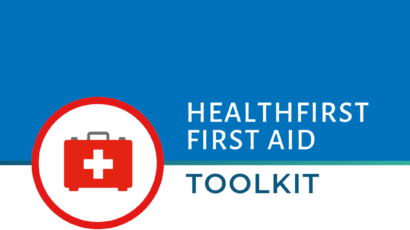By Dr Penny Fraser MBBS BSc (Hons) MRCS (Eng)
Chestnuts roasting on an open fire alongside Nat King Cole. We all want some figgy pudding, don’t we? (and bring some right here!) Not to mention the obligatory Bridget Jones style festivities: “It all began on New Years Day….once again I found myself…..going to my mother’s annual turkey curry buffet.”
It’s the season of stretching wallets but also stretching our stomachs with unusually rich foods, plenty of them and usually dissolved in more-than-usual champagne, brandy and other delights.
Often our bodies do complain to us in various ways over the holiday period, including the unpleasantness ofdyspepsia. This is the medical name for the group of symptoms that come from the upper part of your digestive tract – the oesophagus (food pipe or gullet), stomach and duodenum (the first part of your small intestine).
Take a read of this blog – you will find out about how your stomach normally works, what can go wrong to cause dyspepsia, what are the symptoms and what you can do about it – both lifestyle changes and medications.
Reading on may help you interpret what is going on in your own body or those of a friend or family member. Why not be the knowledgeable one when your family comes to share a turkey dinner with you!!

How does the upper part of your digestive tract work?
Normally when food is chewed, mixed with saliva and swallowed, it passes down the oesophagus and into the sac-like stomach. There is a valve between the end of the oesophagus and the beginning of the stomach that opens temporarily to allow the food through and then shuts again.
The stomach produces hydrochloric acid and this mixes with the food to help kill any bacteria and start the digestion process. This acid can be as strong as pH 3.5 – 1.5 but the stomach lining is shielded from attack by secreting a thick protective layer of mucus.
What causes dyspepsia?
If the body produces too much of this acid or not enough protective mucus, the stomach lining will become irritated and inflamed. The lining of the oesphagus can also become inflamed if the valve between it and the stomach opens up and the acidity flows upwards. If the acid flows downstream from the stomach, the duodenum can become inflamed.
When doctors look into people’s insides with a camera (gastroscopy) they may see this inflammation. Sometimes the inflammation can be so bad that an ulcer can form in any part of the upper digestive tract – this is an open sore that may give bad symptoms for that person.
What are the symptoms of dyspepsia?
Symptoms can include pain or discomfort in the upper belly or in the chest, bloating, belching, feeling full too quickly, nausea, vomiting and an acidic taste in the mouth You may have heard this collection of symptoms referred to as heartburn, indigestion, acid reflux, water-brash or gassiness, amongst other names. The medical French word is dyspepsie. In German, it is the same. In Italian – dispepsia.
Is there anything that can make dyspepsia worse?
Yes! The following factors can be triggers:
- Irregular or large meals – this is where the holiday season brings its challenges!
- Being overweight.
- Smoking.
- Too much alcohol.
- Posture – for example lying down or bending over during the day. Wearing tight belts or waistbands can also squash the stomach and its contents.
- Eating or drinking too much and too late before bed.
- Some people find spicy or fatty foods make their symptoms worse.
- Pregnancy – not only can the stomach be squashed by the growing baby but the pregnancy hormones can also soften the valve or stimulate too much acid production.
- Stress and anxiety. Again, an issue during the festive season for so many of us.
- Having a condition called ‘hiatus hernia’. This is when part of the stomach is pushed up through a gap in the diaphragm – the breathing muscle that separates your chest and your abdomen. However, some people are diagnosed with a hiatus hernia when they have a CT scan for something else, for example, but never suffer any symptoms at all.
- Having a ‘silent’ infection in the stomach with a bacteria called ‘Helicobacter pylori’. This is easily and unknowingly spread around the community by close contact, often amongst family members. It usually causes no problems at all but for 1 or 2 people in 10 it can cause dyspepsia and sometimes ulcers. Your doctor can do a simple test for this germ and can prescribe you a course of antibiotics to get rid of it.
- Some medications – prescribed or bought at a pharmacy – can cause dyspepsia, or make it worse. Examples include non-steroidal painkillers e.g. ibuprofen (Advil, Irfen, Brufen etc.), diclofenac (Voltarol, Voltarène) and aspirin; some antibiotics for infections; steroids such as cortisone etc.
If you think that your dyspepsia might be related to medications, talk to your doctor about alternatives or additional treatment. Please – never stop a prescribed medication without talking to a doctor first!
I’ve seen adverts for various liquids and tablets that can help. How do they work?
There are two main groups of treatments for dyspepsia which work in different ways:
Antacids: these are liquids or tablets that neutralize the stomach acid giving rapid relief from the symptoms. They can be taken as and when needed. They contain alkalis such as aluminium hydroxide, magnesium trisilicate and calcium carbonate, amongst others.
When these alkalis get to work on the acid, gas can be produced and cause burping and belching. Some antacids therefore include simeticone which calms down this reaction.
Some antacids also include compounds called alginates that form a ‘raft’ that floats on top of the stomach contents helping to prevent acid flowing upwards and irritating the oesophagus. Brand names available in Switzerland include Gaviscon®, Ulcogant®, Flatulex®.
Acid-suppressing medicine: these are tablets or solutions that switch off the cells in the stomach lining that produce the acid, therefore stopping the problem before it starts. There are two main groups – proton pump inhibitors and H2-receptor antagonists, usually taken regularly every day.
Your doctor will choose which is best for you and how long you should take them for. Brand names available in Switzerland include Nexium®, Antramups®, Zantac®, Pepcid®.
Where can I get these treatments?
You can buy most brands of antacids without a prescription at your pharmacy. Be sure to discuss with the pharmacist your symptoms and what other medications you are taking regularly.
As always – read the label, check the use-by date, don’t take someone else’s medications and keep all pills and potions out of sight and out of reach from children. Remember that Christmas is a peak time for accidental poisoning. Take a look at our blog on Poisoning here to find out more:
https://healthfirst.ch/poisoning-an-unwanted-christmas-gift/
Your doctor can also prescribe antacids but may want to add a course of acid-suppressing medication as well, or antibiotics to get rid of any Helicobacter pylori infection present.
How do I find a pharmacy that is open over the holidays?
The pharmacies in Switzerland take turns to be open at night, weekends and during public holidays. You can find out which Geneva pharmacies are ‘on-call’ for that day by calling 0848 848 110 or going to:https://www.pharmageneve.ch/home/acces-public/pharmacie-de-garde.html
In the canton of Vaud, call 0848 133 133 or go to:
http://www.vaud-pharmacies.ch/f/lien-actualite-pharmacie/servicedegarde.asp
Is dyspepsia always treated like this?
Usually dyspepsia is an annoying but benign problem. But occasionally it can be a sign that there is something more seriously wrong inside the body. If you are worried, go to see your doctor to talk about your concerns, especially if you or a family member has any of the following symptoms:
- Difficulty swallowing
- Vomiting a lot or vomiting red/brown blood
- Passing red or black stools
- Losing weight unintentionally
- Feeling generally unwell and weak
- Finding a lump in the tummy
- If you have had a lot of symptoms that just won’t go away
- If there are stomach problems in your family, including ulcers, cancer etc.
We are often more concerned about the health of the older people in our family and certainly if someone over the age of 55 is having any of the above problems, encourage them to see a doctor as soon as possible.
We hope this blog has been useful for you – do share with your friends, family and colleagues. From all the team at HealthFirst, we wish you a happy and safe Christmas.





